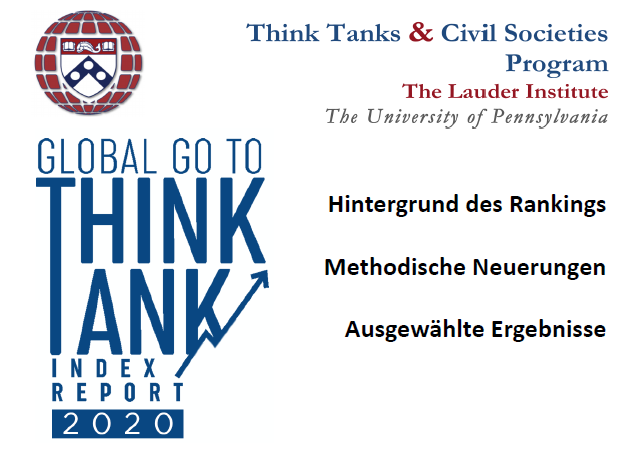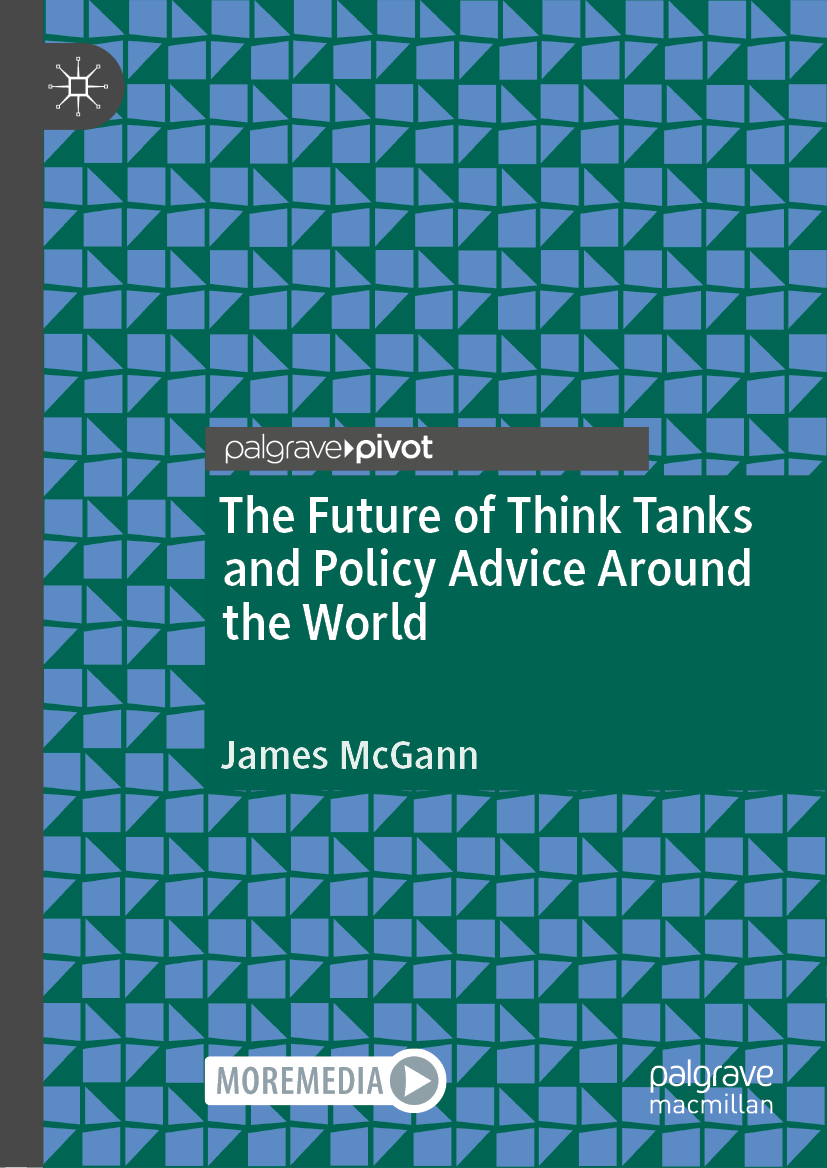
Ecologic Institute
Berlin Launch of the 2020 Go To Think Tank Ranking Index
- Event
- Date
-
- Location
- Berlin, Germany
- Speaker
In light of the global challenges posed by 2020, the launch of the 2020 Go To Think Tank Ranking Index asked the question "why do think tanks & policy advice matter in times of crisis". The Berlin Launch event, hosted by Ecologic Institute, the Friedrich Ebert Foundation and the Konrad Adenauer Foundation, provided space for a lively discussion about the role and placement of think tanks when faced with unprecedented global crises. The 2020 Go To Think Tank Ranking Index is compiled and published annually by the University of Pennsylvania's Think Tank and Civil Societies program (TTCSP) with launch events in over 25 different countries.
On the heels of two first place rankings as Top Environment Think Tank and Top Think Tank with the Best Quality Assurance and Integrity Policies and Procedures, Dr. Camilla Bausch of Ecologic Institute welcomed the 30 + participants, pointing to signs of hope for the new year and the increase in the perception of the importance of science in policy decision-making. She warned against the spread of misinformation and suggested that think tanks have a role to play in ensuring creation and dissemination of robust, evidence-based information. Welcoming statements were also issued by co-hosts Thomas Birringer, Deputy Head of the Konrad Adenauer Foundation and Katharina Hofmann de Moura of the Friedrich Ebert Foundation. Sabrina Schulz of Das Progressive Zentrum moderated the event.
R. Andreas Kraemer briefly provided a summary of the results and background on the Index as well as comments of the methodology. Detailed information can be found in the Index as well as Mr. Kraemer's presentation below.
Looking towards the central question of the role of think tanks during times of crisis, Thomas Birringer pointed to increased public scrutiny regarding the engagement of policy advisors as well as skepticism stemming from populistic values. Furthermore, a certain type of myopathy exists during a crisis like a global pandemic: attention becomes focused on a singular problem and pandemic-inflicted lack of movement makes it more challenging to investigate and report on information outside of a small area. This is also applicable to the quality of empirical research, as stated by Prof. Dr. Imme Scholz of the German Development Institute (DIE). Think tanks must be prepared to adapt to these sudden changes and transform their working models in a relatively short amount of time in order to be equipped to continue their work.
Looking beyond the Covid-19 pandemic, Katharina Hofmann de Moura pointed out additional challenges such as the flow of misinformation, an increase in polarization and threats to democracy. Prof. Dr. Imme Scholz expressed how these global crises show how the importance of multilateralism and global cooperation among governments and institutions to approach these issues. Prof. Dr. Scholz also outlined the importance of multi- and transdisciplinary approaches to these problems – a competence that think tanks inherently provide.
Prof. Dr. Martin Thunert of the Heidelberg Center for American Studies (HCA) called on think tanks to use times of crisis to reflect on their identity and goals. There exists an international discrepancy in the understanding of think tanks, with some institutions learning more towards advocacy and others – like in the German context – firmly rooted in science and research. The panel unanimously supported the practice of reevaluating institutional self-perception while emphasizing the importance of scientific credibility, robust results and transparency. In an age of disinformation, these principles are more important than ever.
The Berlin Launch was co-hosted by Ecologic Institute, the Konrad Adenauer Foundation and the Friedrich Ebert Foundation.




